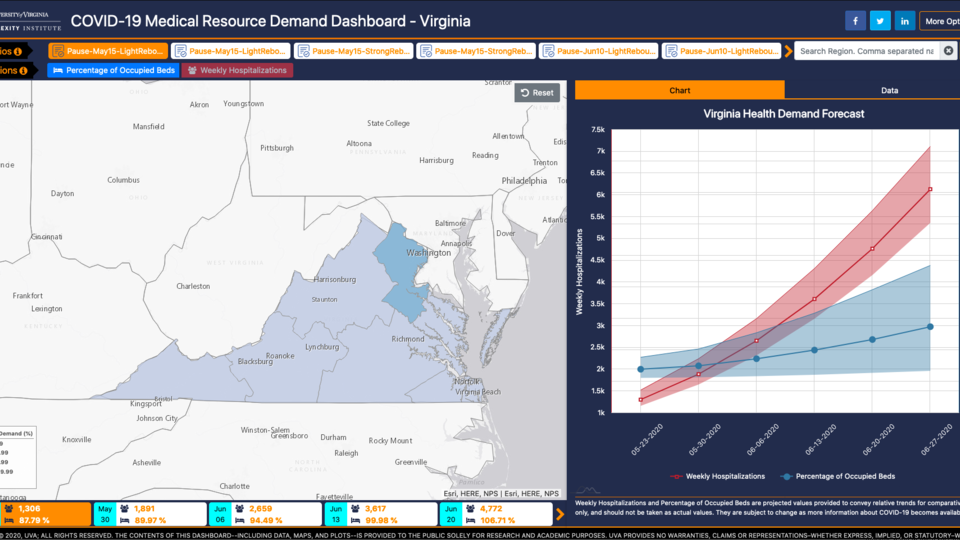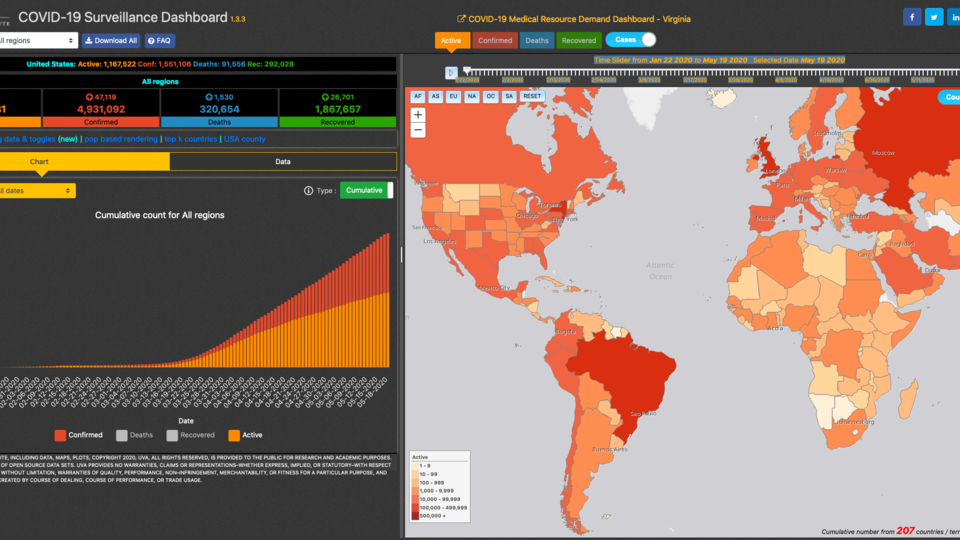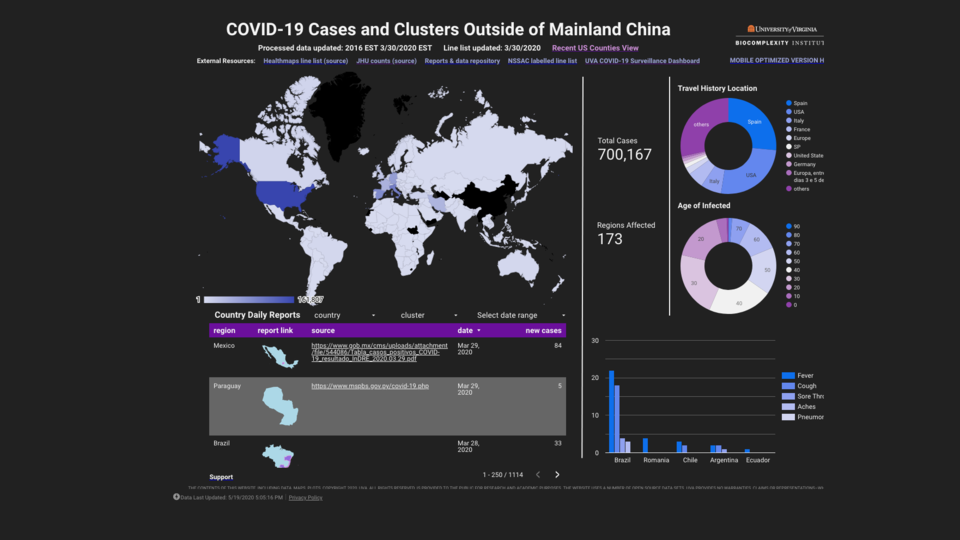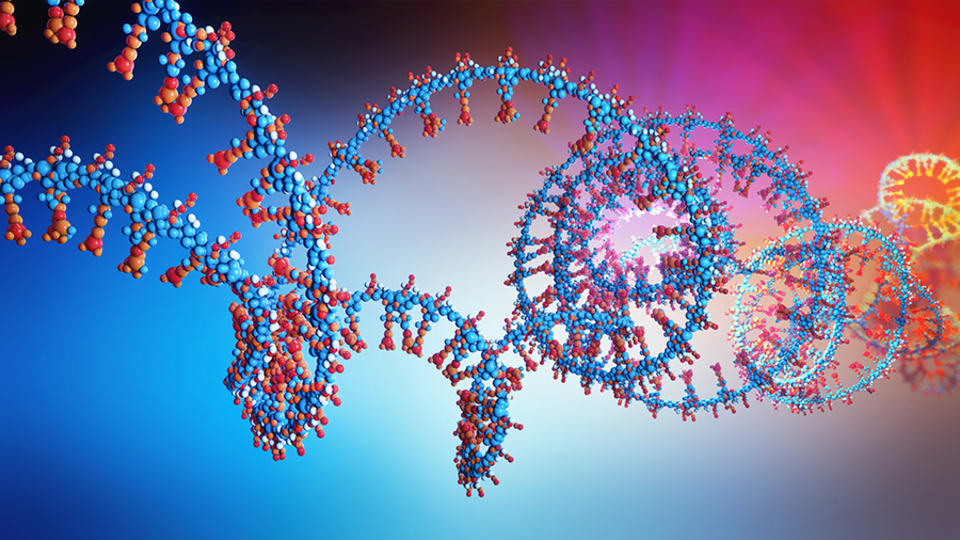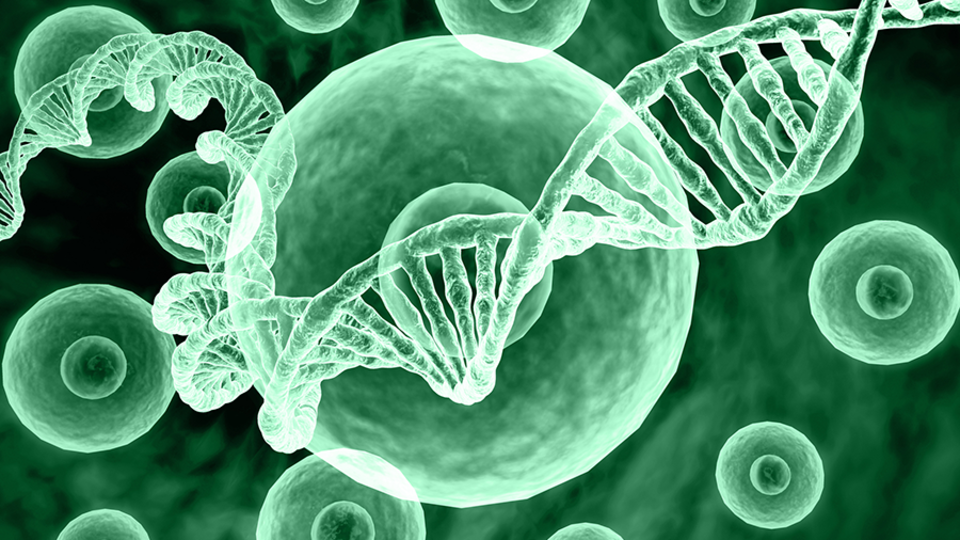
Research
We forecast social, health, and infrastructure outcomes by modeling complex scenarios
How can we best fight infectious disease outbreaks? When will a social media protest become a civil crisis? We investigate large-scale biological, social, and technological systems at play in the world. By simulating scenarios of unfolding situations, we provide insights to help decision-makers refine science-based responses. In the process, we produce high-tech tools and foundational knowledge that advance the science of biocomplexity.
Areas of Focus
We apply our computational modeling tools and combined expertise to tackle a broad swath of issues affecting human life – from improving disaster resiliency in city infrastructures to identifying previously unknown organisms in our environments and bodies.
Modeling for COVID-19
We've modeled several epidemics in the past 20 years, including H1N1 and Ebola. Today, collaborating with researchers from across the Institute and the University of Virginia, we're modeling scenarios to help governments and the global research community understand and mitigate the spread of COVID-19.
Computing for Global Challenges Program
From human health to infrastructure, our world is facing enormous threats. To understand them, we need and use data. This undergraduate program is a training ground for the next generation of data-driven researchers. Working in teams with peers and scientists from the Institute's Network Systems Science and Advanced Computing division, students learn a new way to address real-world issues while working on critical research projects.
All Projects
All Publications

Use Our Tools
As we progress in our work we develop dashboards, software tools, and data sets that aid in our research. Some turn out to have a much wider scale applicability than expected and could thus prove useful to others. We package our software and make it freely accessible to the global research community, policymakers, and the public.



